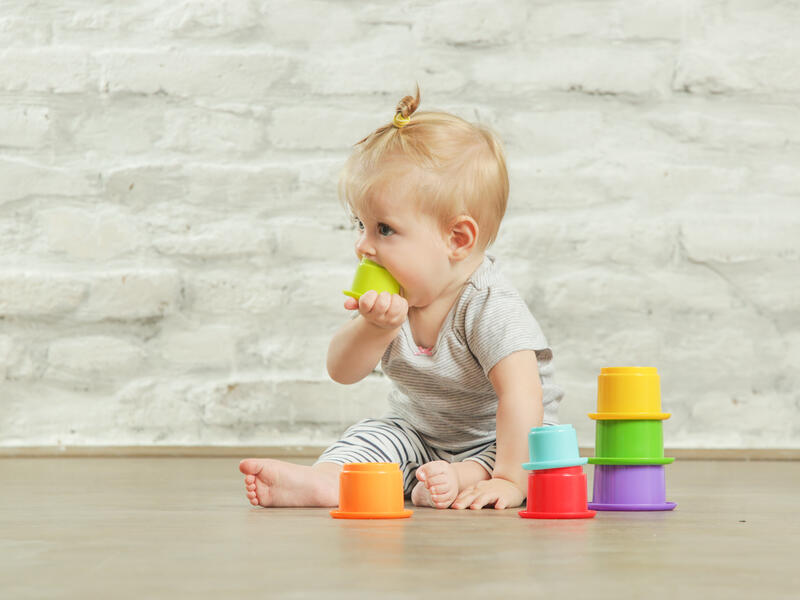Supporting your baby’s natural curiosity is foundational to learning.
Did you know you have an important role to play to set the stage for your baby’s learning? You can do that by having a playful attitude when interacting with your child. You can also choose objects that invite curiosity and exploration. How does play help your child learn?
Developing the brain through play
When your baby is given the opportunity to play and explore, your baby is building skills that have long-term benefits. Watch your baby play. You will likely see the development of:
- Problem-solving skills as your baby searches for hidden or missing objects
- Understanding of cause and effect when your baby drops things and you pick them up
- Decision making as your baby chooses what toys to play with
- Relationship building when your baby responds to others’ laughing with laughter
- Social skills as your baby reaches for another baby; the initial stage of developing friendships
What safety devices do you need? Get a consultation and free starter safety kit.
How to encourage play
You can promote healthy brain connections that form a foundation for continued learning.
Provide your baby with a safe environment:
- Can your baby freely explore without getting hurt or without constantly being told, “No, don’t touch”?
- Have you safety proofed your home to lessen the chances of injury for your baby while playing and exploring?
Also, provide your baby with opportunities to explore:
- Are there toys or household items for your baby to interact and experiment with safely?
- Are there toys easy to reach and available for your baby to grab during playtime?
- Have you put away items you don’t want your baby to explore with, such as the TV remote?
If you answered no to any of these questions, consider changing your baby’s play space.
Providing for everyday play
Anything within reach is a potential toy. Babies want to know how things work and what happens when they drop, roll, shake, bang or throw things. Provide safe materials like:
- Blocks for stacking and knocking over
- Shape sorters for learning problem solving
- Ball ramps for learning cause and effect
- Stacking and nesting toys for building and more problem solving
- Board books with sensory items for touching, feeling and exploring
- Percussion instruments like shakers, drums or a “rain stick” to make music
- Bath toys for floating and sinking or cups for pouring
Learn more
- Baby’s 1st birthday: Your child’s 12-month checkup
- Teething truths: Signs, symptoms and when baby may be sick
- Everything you need to know about your child’s dental care
…
Posted In Children's, Parenting
